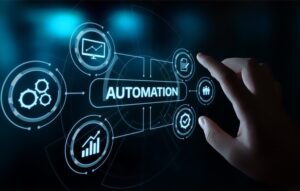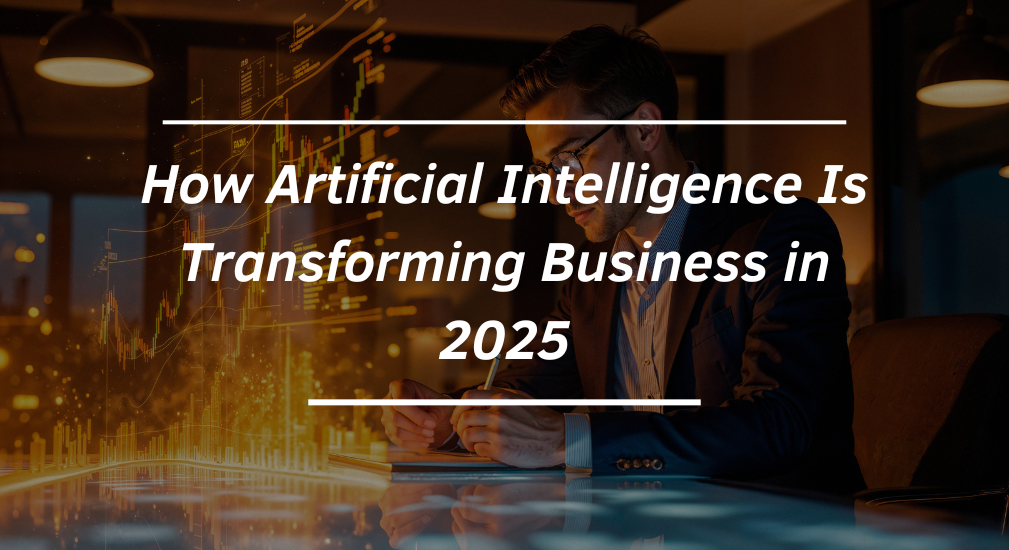In 2025, Artificial Intelligence (AI) is reshaping the global business landscape. Once considered an emerging technology, AI has now become an essential tool for companies aiming to stay competitive, agile, and innovative. Across every industry, AI is enabling smarter decision-making, automating processes, and unlocking new opportunities for growth.
AI-Powered Customer Experience
AI in 2025 plays a central role in enhancing customer experiences. Businesses are using AI-driven chatbots, voice assistants, and personalized recommendation engines to offer 24/7 support and highly customized service. These technologies are not only improving satisfaction but also increasing conversion rates and customer retention.
For example, e-commerce platforms now use machine learning algorithms to analyze customer behavior in real-time, offering dynamic product recommendations and optimized pricing. AI ensures that each interaction is relevant, timely, and engaging.
Automation of Business Processes

One of the most significant impacts of AI in 2025 is the automation of repetitive tasks. From finance to HR, AI systems are handling invoice processing, payroll, recruitment filtering, and more. This automation frees up human talent for higher-value strategic work while reducing human error and operational costs.
Robotic Process Automation (RPA) combined with AI capabilities is being used extensively in industries like insurance, healthcare, and manufacturing. Companies are seeing major improvements in efficiency and scalability by integrating AI into their workflows.
Data-Driven Decision Making
AI’s ability to process and interpret massive volumes of data in real-time is transforming business intelligence. In 2025, predictive analytics and AI-driven dashboards empower leaders to make faster, smarter decisions based on actionable insights.
Businesses are no longer reacting to trends—they are anticipating them. Whether it’s predicting customer churn, optimizing inventory, or detecting fraud, AI provides a competitive advantage by making the future more visible and manageable.
AI in Marketing and Sales

Marketing teams are leveraging AI to segment audiences, generate content, and optimize campaigns. AI tools can analyze consumer data to predict behavior, personalize messaging, and even create ad copy. In sales, AI-driven CRMs help sales reps focus on the most promising leads by scoring and nurturing them automatically.
In 2025, many businesses are adopting AI-powered sales assistants that guide customer conversations, recommend products, and close deals autonomously, significantly increasing conversion rates.
Revolutionizing Supply Chains
AI has transformed supply chain management with real-time monitoring, predictive logistics, and demand forecasting. In 2025, smart warehouses use AI and IoT sensors to automate inventory management, track shipments, and predict delays before they happen.
This level of precision enables businesses to reduce waste, cut costs, and respond to market changes with unprecedented speed and accuracy.
AI and Cybersecurity

As digital threats become more sophisticated, AI is a crucial line of defense. In 2025, cybersecurity solutions powered by AI are detecting and neutralizing threats in real time. These systems learn continuously, adapting to new attack patterns and ensuring better protection for sensitive business data.
Companies are investing in AI tools for identity verification, anomaly detection, and secure data handling, building stronger digital infrastructures to protect against breaches.
AI Accessibility for Small Businesses
AI is no longer limited to large enterprises. In 2025, small and medium businesses (SMBs) are using affordable AI tools to enhance productivity and reduce costs. No-code and low-code AI platforms allow entrepreneurs to integrate AI into their operations without deep technical knowledge.
From automated customer service to intelligent email marketing, SMBs are now able to compete with larger players by embracing AI innovation.
Challenges and Ethical Considerations
Despite its benefits, AI adoption comes with challenges. Concerns around data privacy, algorithmic bias, and job displacement are at the forefront of the AI conversation in 2025. Businesses must implement AI responsibly, ensuring transparency, fairness, and compliance with evolving regulations.
Ethical AI frameworks, inclusive datasets, and explainable AI (XAI) models are becoming standard as companies aim to build trust with users and stakeholders.
The Future Outlook

As we look beyond 2025, AI will continue to drive innovation across all sectors. With the rise of generative AI, autonomous systems, and human-AI collaboration tools, the line between digital and human intelligence will blur even further.
Businesses that invest early in AI, foster a culture of innovation, and adapt to AI-driven workflows will lead the next generation of industry pioneers.
Conclusion
Artificial Intelligence is not just transforming business in 2025—it is redefining what business means. From personalized marketing and predictive analytics to smart automation and secure data management, AI is at the heart of modern enterprise strategy.
Companies that understand and harness the power of AI will thrive in an increasingly digital, fast-paced, and data-driven world.
